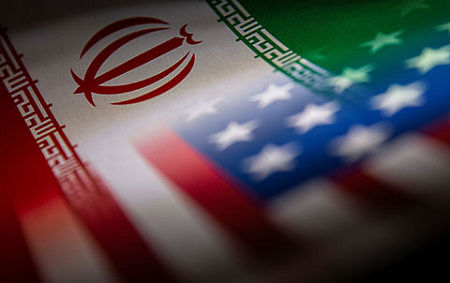
Iran insists that on April 12 in Oman, its representatives will discuss only the nuclear issue with the United States. Washington is not opposed to including a wide range of topics on the agenda, including the Iranian missile program and the military activity of groups loyal to Tehran in the region. Despite reports that Iranian proxy forces are about to lay down their arms amid the ongoing U.S.-Iranian dialogue, last week, for the first time, Tehran transferred its long-range missiles to Iraqi groups.
The Iranian authorities consider the negotiations with the United States in Oman to be a test of trust. During his visit to Algeria, Iranian Foreign Minister Abbas Araghchi said that the meeting in Muscat was “a new opportunity for diplomacy and a test of the seriousness of the intentions of the United States, which has a long history of unscrupulous acts.”
Separately, the chief of Iranian diplomacy stressed that his country does not want to discuss anything other than its atom at the talks. “Only the nuclear issue will be discussed, namely the provision of assurances and guarantees of the peaceful nature of Iran’s nuclear program in exchange for the lifting of unfair sanctions,” the foreign minister said.
A source from the Qatari newspaper Al-Arabi al-Jadid pointed out that Tehran refuses to discuss political issues. “Trump wants a new deal: to end Iran’s regional influence, dismantle its nuclear program, and halt its missile development. This is unacceptable for Tehran. Our defense is not subject to discussion,” the Iranian interlocutor of the portal explained. It follows from his statements that the existence of the “axis of resistance” – a club of paramilitary movements loyal to Tehran – is a strategic asset of the country. “We will not allow our regional policy and partnership to be questioned,” said an Iranian official who was interviewed by Al-Arabi al-Jadid.
This is at odds with the wishes of the United States. According to Al-Arabi al-Jadid sources familiar with the White House’s plans, the upcoming dialogue in Oman will be political, not technical.
According to The New York Times (NYT), Iran is also insisting that negotiations focus on creating a revised version of the Joint Comprehensive Plan of Action (JCPOA), the original 2015 nuclear agreement that limited Iran’s nuclear program in exchange for easing international sanctions. This challenges the plans of President Donald Trump, who would like the entire nuclear infrastructure of Iran, the NYT points out. In addition, as sources of the Iranian opposition channel Iran International reported earlier, Israeli Prime Minister Benjamin Netanyahu called on the United States to push through a scenario with the complete curtailment of Iran’s uranium enrichment program.
Other contradictions are related to the format of the negotiations. The White House continues to say that this will be a direct meeting. Tehran still insists on dialogue through intermediaries. “We are ready to negotiate with the United States, but indirectly, because we do not trust them,– President of the Islamic Republic Masoud Peseshkian said during a speech on April 9 on the occasion of National Nuclear Technology Day. “You can’t impose sanctions on us and then offer to negotiate and point out what we have to agree to and what we don’t.” He added, “We don’t need a nuclear bomb, but they are constantly spreading propaganda. You’ve checked it a hundred times, check it a thousand more times, but we only need the development of science and nuclear energy.”
However, Iranian officials, in a conversation with Al-Arabi al-Jadid, admitted that the negotiations in Oman could be direct. But the possibility of such a meeting will be considered by Tehran only if the Trump administration first makes a concrete gesture of goodwill, the interlocutors explained. For example, Washington is expected to lift some sanctions or unfreeze Iranian assets in other countries.
The Trump administration notes that it is important for it to find at least some common ground with Iran. In particular, this was stated by Morgan Ortagus, Deputy Special Envoy of the President of the United States for the Middle East. “There is serious distrust between the parties,” she said in a conversation with the Emirati edition of The National. – Let’s hold some preliminary meetings and see if there is an opportunity to find common ground in order to find a peaceful solution. Our administration is focused on concrete results and achievable goals. Our team includes many representatives of the business community, and we love deals. We know how to achieve them. We don’t really care about the process itself.”
So far, Tehran is strengthening its negotiating positions. According to intelligence data from the countries of the region, cited by The British Times, the Islamic Republic has for the first time transferred long-range missiles to Shiite groups operating in Iraq. The Islamic Revolutionary Guard Corps sent a batch of powerful shells to the militants last week. This was the first time that long–range surface-to-surface missiles were at the disposal of Iraqi paramilitary forces, The Times notes. “This is a desperate step on the part of the Iranians,” the British newspaper quoted a source in the intelligence community of one of the Middle Eastern countries.
